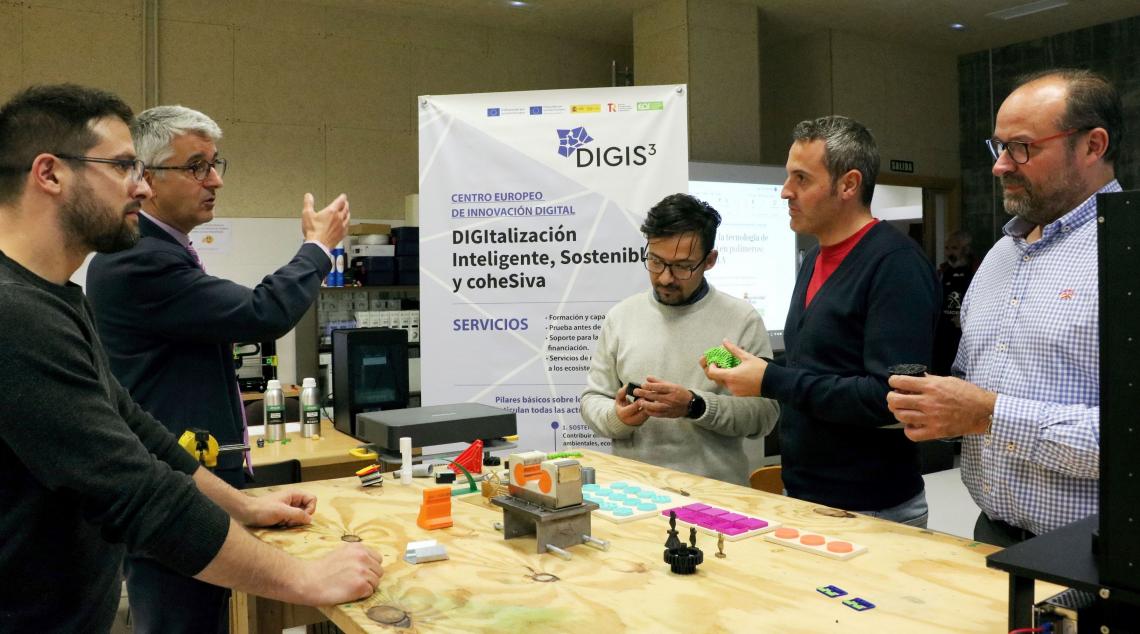Last week, the 3D Manufacturing and Printing laboratory of the Cybernetics Research Module of the University of León (ULE) hosted a free of charge activity run by the TAFI Group (Advanced Manufacturing and Inspection Technologies), which took place within the framework of the DIGIS3 Digital HUB and consisted of a training workshop on additive manufacturing processes applied to industrial companies through the study of practical case studies.

The initiative was carried out to provide the participating companies with a global vision of the existing technologies of this type of manufacturing or 3D printing, so that they can analyse the options for applying them to their businesses. The workshop, of an eminently practical nature, gave the attendees an opportunity to see, in situ, the advantages, the limitations, the required infrastructure and opportunities offered by the different technologies.
Generating synergies between the University of León and companies
The training was carried out with industrial 3D printing equipment using different technologies and materials (polymers, metals, technical ceramics, soft ceramics...). Another objective of the workshop was to generate synergies between the TAFI Group of the ULE and the companies that took part in the workshop, so as to advise on cases of application in their own businesses, and the implementation and use of additive manufacturing techniques as a process in their production systems.

TAFI points out that the introduction of these additive manufacturing techniques in the production sector "is of great interest, as it is a relatively modern technology, but with a very high degree of maturity". Moreover, the industrial implementation of this technique is important, as it is considered to be one of the "enabling technologies" in the process of digital transformation of the business sector, which is why it is included in all the strategic agendas of R&D&I and industrial development of the most advanced countries.
The activity was free of charge thanks to the co-financing of the European Union through the Next Generation EU funds and the Ministry of Industry, Trade and Tourism through the Recovery, Transformation and Resilience Plan.